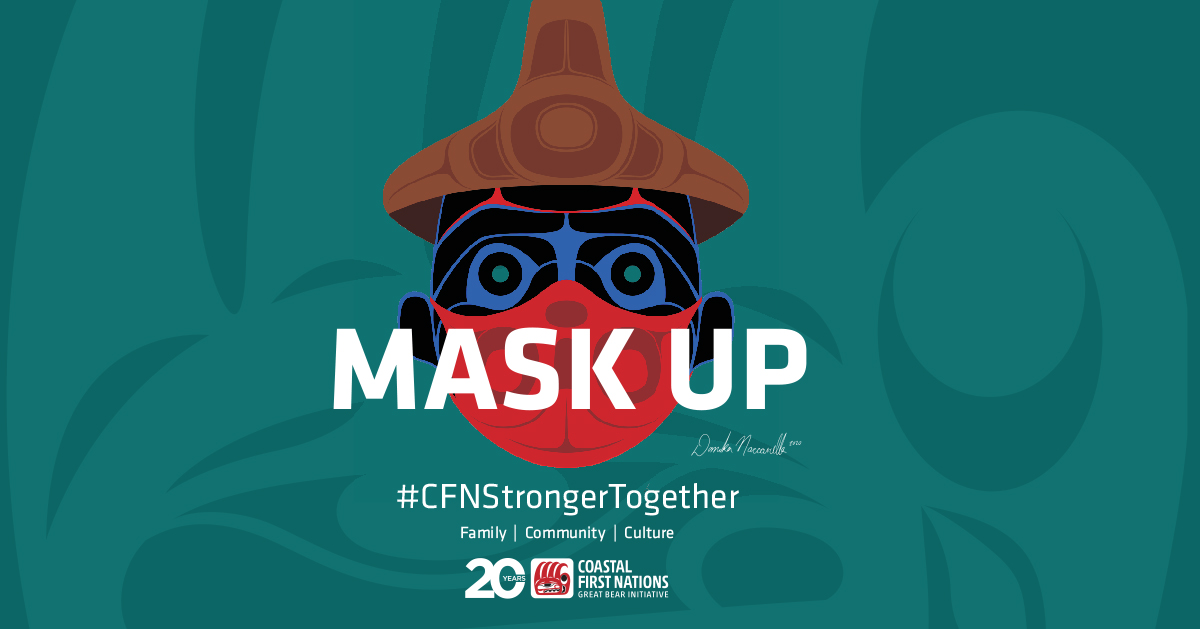Led by the Heiltsuk, Nuu-chah-nulth and Tŝilhqot’in, 21 First Nations are asking the BC Health Ministry to provide early information on the location of COVID-19 cases near their communities, so they can better protect members.
The three Nations filed a petition with BC’s privacy commissioner on September 14 requesting greater transparency from government. They say the province is violating Section 25 of the Freedom of Information and Protection of Privacy Act by refusing to disclose information about a “risk of significant harm to an affected group of people.”
Marilyn Slett, Chief Councillor of the Heiltsuk Nation and CFN-GBI President, says Nations want to know at an early stage when COVID-19 cases are detected in neighbouring communities or in areas where members might be traveling through. “Our members still need to leave the community for medical and other essential travel,” she says. “So people are going out not knowing there may be a cluster of cases in Port Hardy when they’re traveling through. Or if people are traveling by BC Ferries and there’s a known risk of exposure, people would know to be even more cautious than they are right now.”
Nations also want to know at an earlier stage the identity of members in their communities who have tested positive. She says that under the current system the First Nations Chief is the last in a long list of officials to be contacted when a member of the community contracts the virus. Early information means communities can take action sooner.
“We’re not going to disclose this information publicly. But it will help us with our community response – whether we need to institute a curfew or issue a stay-at-home measure, whether the school stays closed, and what actions our services and programs need to take,” Slett points out. “Our Hemas have said with past pandemics we haven’t had information. Their view is that things should be different these days. It’s not the 1800s – it’s 2020 – but the reality is we still don’t have that information and that’s a colonial practice.”
The Heiltsuk also want to know the identity of urban members with confirmed or presumptive cases (those that test positive at the local level and await confirmation at the national level). “If there are urban Heiltsuk we should know as well, because there is always connectivity back to our community. Our contact trace should be part of that.”
The Nations are asking public health authorities to work more closely with Indigenous contact tracers in First Nations communities. “Efforts to track exposure to the virus work best with culturally-safe contact tracing,” Slett points out. “We see first that it’s Indigenous-led – that it’s someone based in the community who is starting with a good baseline of information so we’re not going back to the basics.”
The Heiltsuk hired their own contact tracer last spring as a proactive measure against an outbreak in the community. “We made sure that person had already done a lot of community work. She knows everybody, she knows the social networks in the community and when someone might need to be supported,” Slett explains. “People know who they’re talking to on the other end of the phone – not just someone hired among hundreds of contact tracers for the health authority.”
The Heiltsuk are implementing local measures to improve contact tracing, including requiring members to fill out travel declaration forms before leaving on a trip. These help the EOC know right away who was on a flight or ferry if a risk of exposure occurs.
“At our checkpoints at the airport and BC Ferries, the EOC is also going to start giving out masks and hand sanitizer for people traveling out of town,” says Slett. “If we can give people as much of that before they leave as possible, it will help protect the community.”
Getting this issue in front of the Privacy Commissioner was an important step for the Nations, according to the Chief. “We’re exercising every tool we have. We’re really concerned about a second and third wave and how long it will take to provide a vaccination to all of our communities.”

